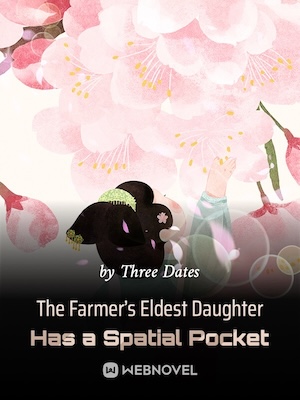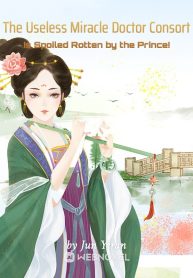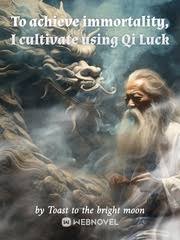Chapter 157: Ministry of Food and Drug Safety (12)
There was a strange vibe in society. As Young-Joon gave the lecture, patients with schizophrenia who had been hiding in society began coming forward one by one. They had been living like sinners, under the assumption that they had the possibility of spontaneously committing violent crimes. Even people who were able to catch and control their symptoms early on with medication and lead normal lives were not immune to the stigma of being labeled as a schizophrenic. However, they realized that they could see the end of their suffering. People at the Ministry of Food and Drug Safety knew how crude Young-Joon’s treatment method was, but ordinary people didn’t understand it that much. What was clearer to them was the name Young-Joon, who had destroyed several diseases in the past year.
—I would like to volunteer for the clinical trial.
—Please let me be part of the clinical trial.
Countless requests for clinical trials were posted on the A-Bio message board from patients who were suffering from the torture of hallucinations and delusions. The response from the academia was worthwhile to see.
—Data from experiments with bonobos hasn’t been published in academic journals in recent years. The first reason is because Congo no longer exports bonobos. The second is because it is burdensome because they are too big and expensive.
Shin Jung-Ju commented. Actually, the scientists were as excited as the patients.
—The McLean Institute for Psychiatric Technology, a hospital affiliated with Harvard’s medical school, commented that the paper was the most beautiful experiment in the last thirty years. I completely agree.
—The public may not be able to recognize the significance of using bonobos for the experiment, but it’s pretty amazing to scientists.
—The neurotransmitters in bonobos are pretty much similar to humans. If that gene therapy worked well in bonobos, it’s likely to work well in humans as well.
—The fact that they were able to get rare bonobos and use it in their experiment shows that the developers have a lot of confidence in this drug. It seems like they told the Congolese government that they would fully cure the bonobos and safely return them. And they actually succeeded, didn’t they? It’s difficult for scientists to make such bold promises and do such bold experiments.
—Of course, as Doctor Ryu said, we have to applaud the MFDA for strongly regulating and not grant approval for a clinical trial until we got data on bonobos. I think it was their collaboration that led to this great paper.
Then, the Ministry of Food and Drug Safety was swarmed by reporters from public broadcasters. The reporters, who came in with smiles on their faces and completely oblivious, asked Heo Song-Hyuk and the other evaluators for interviews.
“Hello, I’m from SBS[1]. We’re going to do a special on the Ministry of Food and Drug Safety about what the ministry does, how clinical trials work, and how the consultations were conducted during the development of the schizophrenia drug...”
Amidst the flood of interview requests and feature proposals, politicians also became interested in the MFDS. Heo Song-Hyuk avoided interviews as much as possible, but when he was forced to do so, he rambled.
The MFDS’s public communication board was going wild, which was unusual. The board only received a post once every two days, and even those posts were mostly advertisements like [Build your job skills! Start now for free!]. Those posts usually got around fifty views.
But now, the board was filled with inquiries about the clinical trial for schizophrenia and posts praising the Ministry of Food and Drug Safety.
“...”
With trembling hands, Heo Song-Hyuk called Young-Joon.
—This is Ryu Young-Joon from A-Bio.
“Doctor Ryu... This is Principal Officer Heo Song-Hyuk.”
—Yes, hello.
“Have you requested the FDA or the EMA for a clinical trial?”
It had already been a few days since then. Given Young-Joon’s personality, he could have already applied for a clinical trial overseas and be conducting it. That would complicate things a lot.
Nervously, Heo Song-Hyuk asked, “Could I ask what stage it is at now...”
—Not yet.
Young-Joon’s answer was surprising.
“Not yet?”
—No, we have done anything yet. We were waiting for your call.
“...”
—As you can see from the reactions now, academia is also very optimistic about its potential.
Young-Joon said. Read latest chapters at nov(e)lbin.com Only
—Now you have enough justification to grant permission, right?
“...”
—And you probably saw the countless number of people asking for the clinical trial. You can see how desperate these patients are for this treatment.
Young-Joon said.
—A cure for schizophrenia isn’t just about curing a couple patients; it’s about curing society’s fear and loathing of mental illness.
“... I’m sorry...”
—It’s alright. I understand your perspective as well.
“We will approve your clinical trial.”
* * *
There was a lot of talk about picking violent criminals for the clinical trials, but Young-Joon ignored it. The subjects were grouped based on age, gender, and the severity of the illness, then were randomly selected. One of them was Song Jong-Ho.
Young-Joon dissolved the mitochondria, which was multiplying in the high-methane solution, in the PBS solution. Now, the mitochondria would die in thirty minutes. The primary doctor drew up the treatment into the syringe and injected it into the nasal passage to send it to the brain. The DT71 on the surface of the mitochondria tracked the amount of dopamine; it was similar to how an amoeba followed their food. The mitochondria moved to the midbrain following the dopamine gradient, and it was distributed along the dopamine pathway to the limbic system.
By the end of fifteen minutes, all the mitochondria were attached to the surface of target cells with high dopamine expression.
Pzzz. Pzzz.
Young-Joon heard tiny static sounds as he zoomed into extreme resolution in Synchronization Mode. It was the noise of the microcurrent flowing through the neurons of the brain. The electrical stimulation was tearing and repairing a few nanometers of the cell membrane. Normally, it wouldn’t be fatal to the cells, but the brain cells of people with schizophrenia were so fragile that they couldn't withstand such small damage. That was also one of the reasons why their brain cells gradually collapsed.
“It will go well. Don’t worry too much.”
“But my brother told me something.”
“What did he tell you?”
“He told me that he tried to hurt himself at the hospital last winter, but some man stopped him. He told me that it seems like that man was you. He told me you look similar.”
“...”
“Haha, probably not. That’s when he was going in and out of consciousness, so he’s probably mistaken.”
After some thought, Young-Joon spoke.
“The thing you told me about how you ran away from school and left your brother there.”
Song Ji-Hyun flinched.
“Yes...”
“You should talk to him when he’s feeling better.”
“...”
“I don’t think that is your brother’s trauma.”
“Pardon?”
“The onset of his schizophrenia was before that incident, and I think you’re the only one who is feeling guilty about it.”
“I’m the only one?
Young-Joon smiled.
“See you around.”
* * *
Rosaline, who explored Song Jong-Ho’s brain, reported it to Young-Joon.
—Song Jong-Ho already had genes that were at risk for schizophrenia.
Rosaline said.
—And the switch that turned those genes on was the pressure he had during school
“Pressure?”
—Song Ji-Hyun is dull, so she doesn’t mind getting all the attention and being a star, but not for Song Jong-Ho.
Rosaline said.
—The overwhelming attention was difficult for him. And maintaining that image was a lot of pressure.
“That pressure cause schizophrenia?”
It was unexpected. Young-Joon was also in the national spotlight, but that in itself was not stressful enough to cause him distress. It was different for everyone, but he couldn’t imagine it being so stressful that it could cause schizophrenia.
—It’s because Song Jong-Ho was already vulnerable.
Rosaline said.
Surprisingly, the fact that Song Ji-Hyun had left Song Jong-Ho behind didn’t even exist in his mind.
“It’s such a difficult disease to understand,” Young-Joon said.
“Even if the drug becomes commercialized, it’s still going to be difficult for psychiatrists.”
—But biology is still one of the underlying causes, and the drug you developed can correct all of that.
Rosaline said.
—Leave the rest to doctors. I’m sure they will do a good job.
Song Jong-Ho’s condition improved daily. This was the case for all eighteen patients in the clinical trial. They no longer took dopamine inhibitors anymore, but they didn’t suffer from hallucinations or delusions. Song Jong-Ho’s mind was clearer than ever.
“There are some things that are becoming clearer as my mind gets better.”
It had been eleven days since the start of the clinical trial. Song Jong-Ho, who was almost free of his symptoms, said to Song Ji-Hyun, “I saw a hallucination when Doctor Ryu came to our house before, right?”
“Yeah. You said a little girl was going around the living room?”
“That scene is too vivid. Other hallucinations and visions fade away, but that one is still clear.”
Song Ji-Hyun chuckled and ruffled Song Jong-Ho’s hair.
“Maybe an angel visited you because you were meant to get better.”
1. a big public broadcaster in Korea ☜







